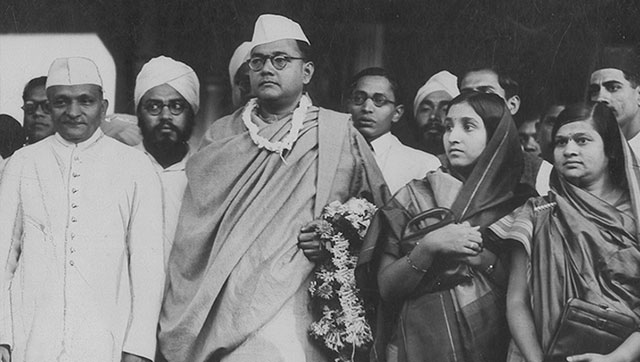
As Netaji Subhas Chandra Bose's death anniversary is nearing, the days of Netaji's last days in Singapore are back in focus. The first controversy this year was raised by JBP More, a Paris-based Indian historian, who teaches at the Institut des Hautes Etudes Economiques et Commerciales.
Quoting from a French Secret Service report which stated that Bose was untraceable as of 1947 and referred to him as the ex-chief of the Indian Independence League and a member of Hikari Kikan, a Japanese organisation, More said Bose was still alive in 1947 for the French Secret Service.
Quoting the "Haut Commisariat de France for Indochina" report, the historian told the Times of India: "In this report, it is clearly stated that he was the ex-chief of the Indian Independence League and a member of Hikari Kikan, a Japanese organisation. It is further stated clearly that he escaped from Indochina, though it does not state how." More further argued that Netaji could have been alive around 1947.
However, Netaji was neither a member of the Indian Independence League nor Hikari Kikan. The dissolved Indian Independence League under Rash Behari Bose was merely used by Japan to facilitate Netaji's more-powerful Azad Hind Government based out of Singapore. Secondly, Hikari Kikan was a Japanese liaision office between Netaji and the Japanese government and no Indian was its member.
However, the French Secret Service was not alone to believe that Netaji was alive even two years after the aircraft crash. Even CIA and the British Intelligence believed that Netaji was alive until 1947 since the Radio Broadcast of Azad Hind Government based out of Singapore beamed out pre-recorded speeches of the Indian leader until 1947.
Even Gandhiji wrote a letter to Bose's family asking them not to perform 'Shraddha' or post-funeral rites, owing to his belief that Netaji was alive somewhere. But Japan has maintained throughout that the Indian leader was killed in aircraft crash on August 18, 1945 and that the ashes brought to Renkoji temple in Tokyo were his.
Indian government instituted two committees -- the Shah Nawaz committee and the Justice G.D. Khosla commission-- which agreed with Japan's version of crash theory while the third Justice Mukherjee commission that had been forced to rush through its report left the issue vague saying the evidence was not enough to conclude that Netaji died in the crash.
None of the Netaji Files, comprising over 16,600 pages of historic documents made public last year by the Indian government, prove the conspiracy theory substantially, leaving it as vague as it was in 1947.








